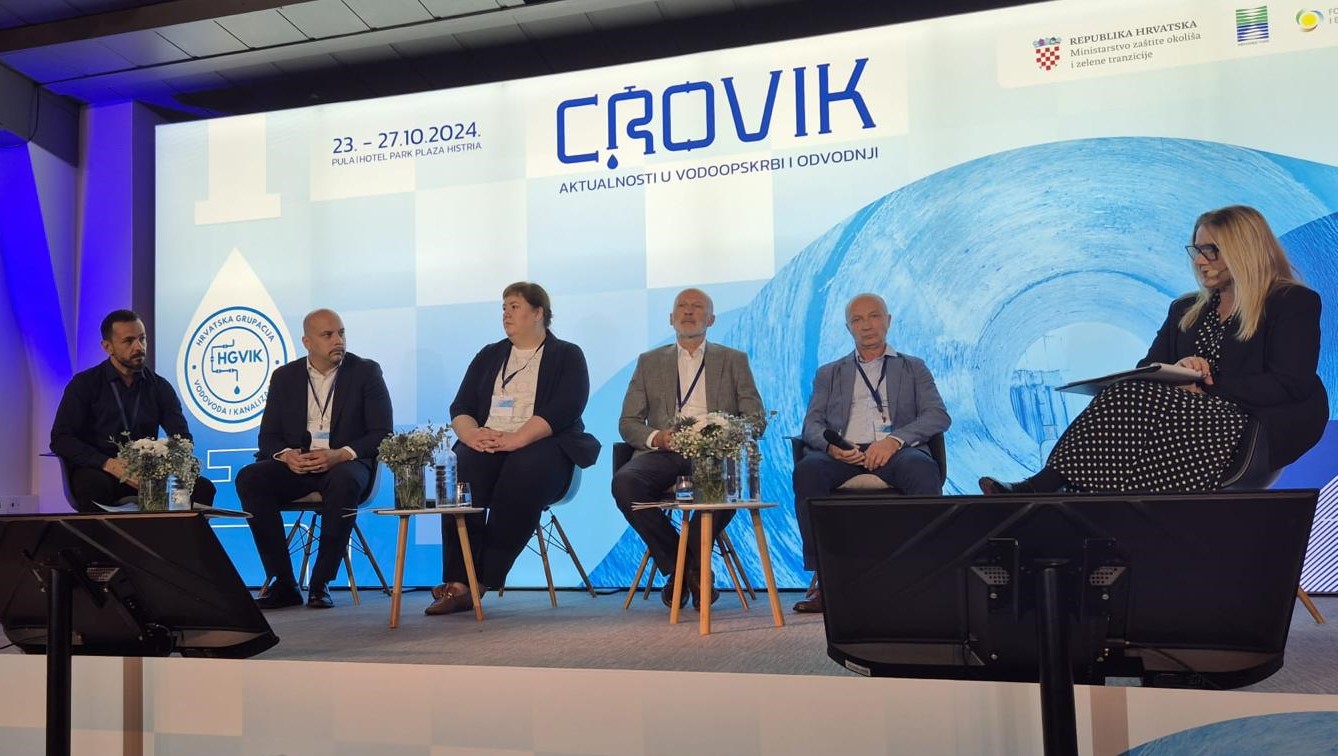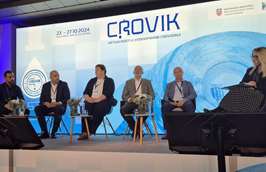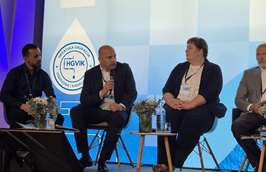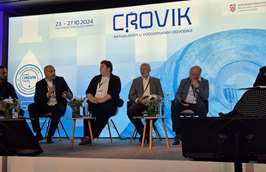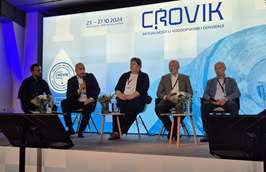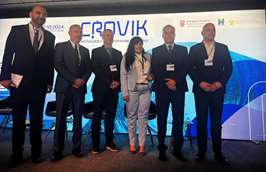24.10.2024.
The annual meeting of the Croatian Waterworks and Sewerage Group CROVIK was held in Pula, gathering more than 700 participants and experts. As part of the event, a panel discussion on the topic of energy sustainability was held, with participation of the director of the Fund, Luka Balen, along with the representatives of ministries and water supply companies.On this occasion, Balen emphasised that the public sector, with appropriate support and vision, could lead energy changes, setting an example and paving the way toward energy independence, encouraging both companies and citizens to follow that path. This also includes water companies, for which sustainable operations and the use of solar energy are crucial. "The challenge lies in reducing energy consumption and increasing efficiency, without negatively affecting water quality and availability. So, the Fund first provided 1.1 million euros for the preparation of project documentation for the installation of PV power plants, and now, in cooperation with the Ministry of Environmental Protection and Green Transition, it plans to allocate significant monetary resources from the Modernisation Fund for their actual installation. About 70 projects are prepared and we expect that applications for their funding will be successful,” Balen announced, adding that a total of 80 million euros will be available from the Modernisation Fund for water supply and utility services over a three-year period.
The implementation of these projects will reduce the carbon footprint of water supply systems, as well as operating costs, and increase their resilience to climate change. In other words, it will allow them to operate more efficiently, economically and environmentally friendly.
A similar public call for encouraging the construction of integrated and non-integrated solar power plants is planned for waste collection utility companies. The aid program that defines the eligible costs of the project and the intensity of support allows up to 45% of eligible costs to encourage the installation of photovoltaics, and up to 30% will be given for energy storage costs.
At the event, the president of the CROVIK group (Croatian Group of Waterworks and Sewerage), Marko Eljuga, also posited out that the public water supply and sewerage sector in Croatia had their own transition challenges, but the water services suppliers were adapting their business operations to the modern-day challenges. “The integration of public water service suppliers based on the principle ‘one supplier, one service area’ is resulting in a number of positive effects, and the goal is to create distinct waterworks with enough potential to implement projects financed from the EU funds,” said Eljuga.
The general manager of Hrvatske vode, Zoran Đuroković, believes that the extension of the water-utility infrastructure and constructing new municipal water structures, as well as improving the existing infrastructure and municipal water structures are the main preconditions for having water of high-quality and providing better water services. “The government and line ministries have provided through the NRRP finances for the implementation of structural reforms in the field of water and municipal management and capital projects, so that we can achieve the European environmental standards for the supply of drinking water and sewage,” said Đuroković.
